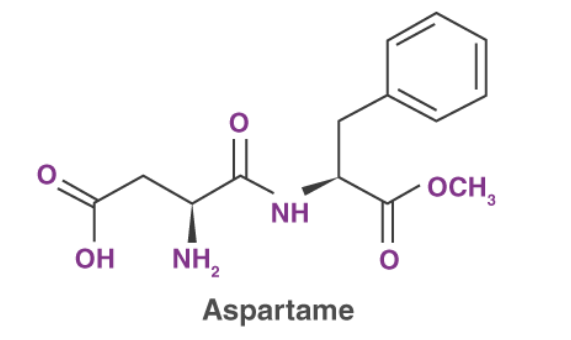Chemicals in Food | Chemistry for JEE Main & Advanced PDF Download
Artificial Sweetening Agents
Sucrose (table sugar) and fructose are the most widely used natural sweeteners. But they add to our calorie intake and promote tooth decay. To avoid these problems many people take artificial sweeteners.
Organic substances which have been synthesized in lab are known to be many times sweeter than cane sugar. Such compounds are known as artificial sweetening agents or artificial sweeteners.
Some important artificial sweeteners are given below :
Saccharin (o-sulphobenzimide)
Discovered by Johns- Hopkins in 1879 (University of USA).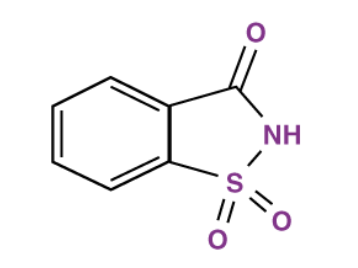
It is the most popular artificial sweetener. It is 550 times as sweet as cane Sugar, since it is insoluble in water, so it is sold in the market as its soluble or calcium salt.
It is non-biodegradable so excreted from the body in urine (unchanged). Its use is of great value for diabetic persons and people who need to control intake of calories.
Aspartame
It is the methyl ester of the dipeptide derived from phenylalanine aspartic acid. It is also known as ‘Nutra sweet’.
It decomposes at baking or cooking temperatures and hence, can be used only in cold food and soft drinks.
Aspartame has the same amount of calories as sugar (4 cal per gram).
Aspartame should not be used by people suffering from the genetic disease known as PKU (phenyl ketone urea). Because in such people decomposition of aspartame gives phenylpyruvic acid. Accumulation of phenylpyruvic acid is harmful especially to infants due to brain damage and mental retardation.
Alitame
It is quite similar to aspartame but more stable than aspartame. It is 2000 times as sweet as sucrose. The main problem for such sweetener is the control of sweetness of the substance to which it is added because it is high potency sweetener.
Sucralose
It is a trichloro derivative of sucrose. It’s appearance and taste are like sugar. It is stable at cooking temperature. It is almost 600 times as sweet as sucrose. However, it neither provides calories nor causes tooth decay.
Cyclamate
It is N-cyclohexylsulphamate. It is only 20 times sweeter than cane sugar.
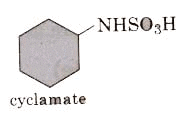
Food Preservatives
- These prevent spoilage of food by stopping the growth of microorganism. For example, Sodium benzoate, sodium meta bisulphate.
- These are the chemical substances added to food to prevent their spoilage due to microbial growth (bacteria, yeasts and moulds) and to retain their nutritive value for longer periods.
- The most commonly used preservatives include table salt, sugar, vegetable oil, vinegar, citric acid, spices and sodium benzoate (C6H5COONA).
- Salts of sorbic acid and propanoic acid are also used as” preservatives for cheese, baked food, pickles, meat and fish products.
- Sodium benzoate is metabolised by conversion into hippuric acid (C6H5CONHCH2COOH), which is ultimately urine. It is used in soft drinks and acidic foods.
- Antioxidants like BHT(butylated hydroxytoluene) and BRA butylated hydroxyanisole) retard the action of oxygen on food and help in the preservation of food materials.
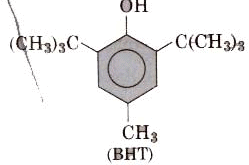
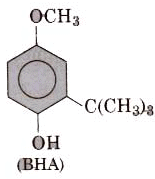
Anti-Oxidants in Food
These prevent the spoilage of food by preventing the oxidation of food. For example,
- Butylated hydroxyl tolerance (BHT)
- Butylated hydroxyl anisole (BHA)
|
334 videos|651 docs|300 tests
|
FAQs on Chemicals in Food - Chemistry for JEE Main & Advanced
| 1. What are artificial sweetening agents? |  |
| 2. How do food preservatives work? |  |
| 3. What are anti-oxidants in food? |  |
| 4. Are chemicals in food safe to consume? |  |
| 5. How can I avoid consuming chemicals in my food? |  |

